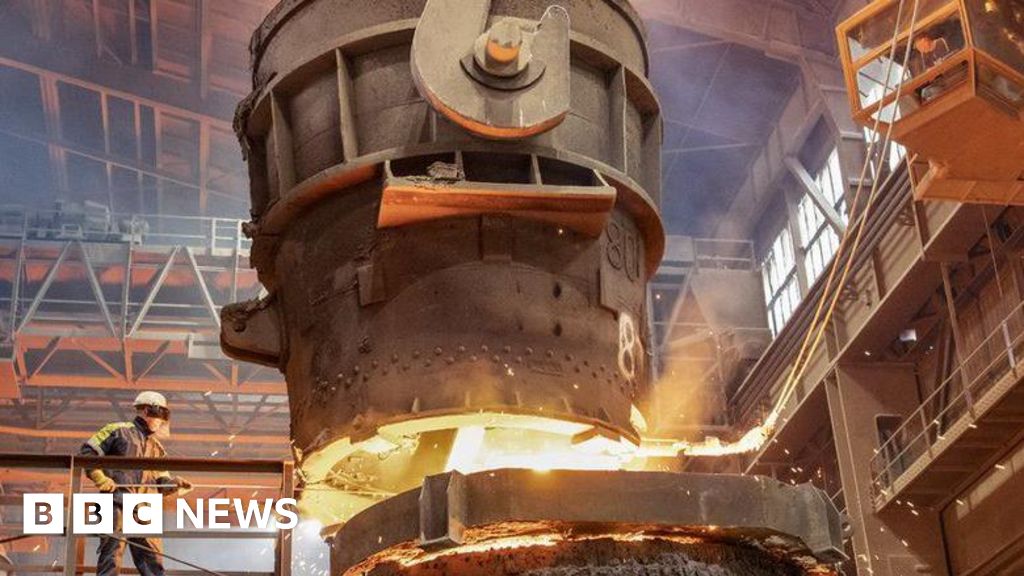At Port Talbot, the GMB and Community unions have presented members with a redundancy deal struck with Tata which would see workers receive 2.8 weeks of earnings for every year of service up to a maximum of 25 years.
Workers can also sign up to a one-year skills and re-training scheme during which they will be paid £27,000.
Union officials hope the number of immediate compulsory redundancies at the UK’s biggest steel works will end up being far lower than 2,800 as many workers who left recently have not been replaced. There have been more than 2,000 expressions of interest in the redundancy and re-training package being offered.
In Scunthorpe, prospects for workers have deteriorated more suddenly.
Unions had hoped that a government support package of up to £600m to Jingye would see one of its remaining blast furnaces remain open during the three years it took to build a new electric arc furnace.
That prospect has faded, according to union and government sources, meaning that up to 3,000 jobs could go.
Asked how the government felt about the next few weeks, a senior source said: “It’s going to feel grim.”
Unions have told the BBC that the closure of blast furnaces at both Port Talbot and Scunthorpe would leave the UK without the ability to make virgin steel.
But other industry voices have downplayed such vulnerabilities, pointing out that the coking coal and iron ore used in blast furnaces are imported from abroad, so importing some virgin steel would make little difference.
Meanwhile, an announcement is expected this month to confirm that Scotland’s only remaining oil refinery at Grangemouth will shut down early next year to become a less labour-intensive oil and gas import terminal.
Government promises to explore a sustainable future for the site based on the planned expansion of renewable energy in Scotland are not expected to come soon enough to save up to 400 jobs.
A government spokesman said: “Decarbonisation does not mean deindustrialisation and government will continue working in partnership with trade unions and business to support good, stable jobs and deliver economic growth.”
A spokesperson for British Steel in Scunthorpe said bosses were in “ongoing discussions” with the government over its future operations.
“While progress continues, no final decisions have been made,” they added.

